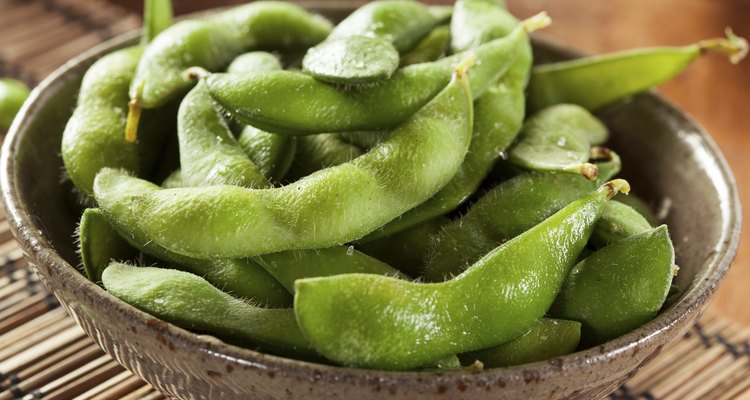
bhofack2/iStock/Getty Images
Soybeans are among the most abundant crops in the United States, and edamame -- soybeans harvested at an early, green stage of development -- is becoming a part of many Americans' diets. Like other beans, edamame comes packed with essential nutrients, and their mellow, nutty flavor works well in a range of dishes. Add edamame to your diet to boost your intake of several nutrients, from carbohydrates to copper.
Basic Nutritional Information
Each cup of edamame beans contains 189 calories, which come from a combination of proteins, carbohydrates and fats. The 8 grams of fat in a serving of edamame provide energy, while its 17 grams of protein help you maintain your immune system and support lean muscle tissue. Each serving of edamame also contains 15 grams of carbohydrates. Slightly less than half of these carbs provide fuel for your tissues, while the remaining 8.1 grams come from dietary fiber, a carbohydrate that fights constipation and supports digestive health. The fiber in one serving of edamame makes up 32 percent of the recommended daily intake for women and 21 percent for men.
Mineral Rundown
Edamame provides considerable amounts of several minerals -- including calcium, potassium, iron, zinc and magnesium -- but serves as an especially rich source of manganese and copper. The copper in edamame allows your cells to make usable energy, boosts your immune system and strengthens your bones. Manganese helps you metabolize fats and carbohydrates, controls your blood sugar levels and contributes to the health of your nervous system. Each cup of edamame provides an impressive 1.6 milligrams of manganese -- 89 percent and 70 percent of the recommended daily manganese intakes for women and men, respectively -- along with 535 micrograms of copper, which is 59 percent of the recommended daily intake.
Vitamin Content
Edamame beans also contain essential vitamins, particularly folate and vitamin C. Both of these vitamins support your cellular metabolism -- vitamin C helps your body process cholesterol, while folate helps you metabolize the chemicals that make up proteins and DNA. They also both fight chronic disease and play a role in combating cardiovascular disease. A cup of edamame provides 482 micrograms of folate -- all the folate you need in a day -- as well as 9.5 milligrams of vitamin C, which is 11 percent of the recommended daily vitamin C intake for men and 13 percent for women.
Consuming More Edamame
Edamame's mild flavor works well in a variety of dishes. Add a handful of edamame beans to your favorite turkey or vegetable chili, or use them to add more body to soups or salads. Alternatively, use edamame's creamy texture to your advantage -- mash it and then combine it with salsa, garlic and lime juice for "edamole," a lower-fat version of guacamole. You can use your edamole as a dip or as a spread in sandwiches or wraps.
Related Articles

Nutritional Value of String Beans

The Nutrition of 15-Bean Soup
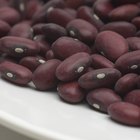
Red Kidney Beans Nutrition

Nutrition Information on Blueberries

A List of Foods That Contain Choline
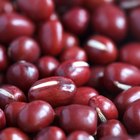
Nutrition Information for Adzuki Beans

The Nutrition of Stone Ground Corn

Is Zinc Good for Hair Growth?
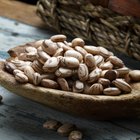
Potassium in Pinto Beans

What Is the Nutrition for Cranberry ...

What Are the Benefits of Great Northern ...

Vitamins for Mental Alertness
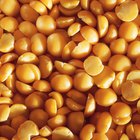
Which Is Healthier, Lima Beans or ...

Which Vegetables Produce the Most ...
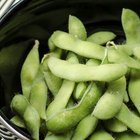
List of High Protein Vegetables
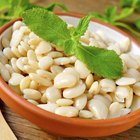
Calories per Cup of Cooked Navy Beans
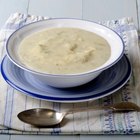
Potato Leek Soup Nutrition

Are Bean Sprouts Good for You?
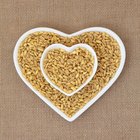
Kamut Vs. Wheat

Facts About Yoplait Yogurt
References
Writer Bio
Sylvie Tremblay holds a Master of Science in molecular and cellular biology and has years of experience as a cancer researcher and neuroscientist.
Photo Credits
bhofack2/iStock/Getty Images